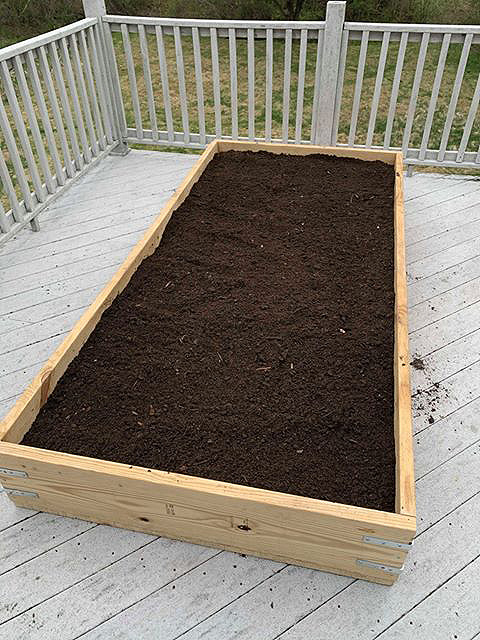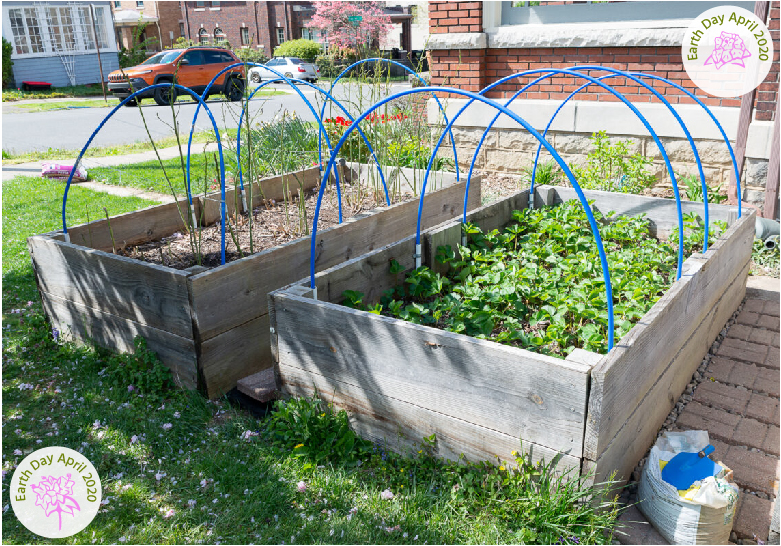Lush green lawns have long been linked with America’s suburbs, but there are more environmentally friendly options that take the same or less work to maintain.
One advantage to a typical lawn is that it offers kids a safe place to play, WVU Extension Service Consumer Horticulture Specialist Mira Bulatovic-Danilovich said.
However, 5% of the nation’s air pollution comes from lawnmowers who help maintain America’s roughly 30 million to 40 million acres of lawns, according to Columbia University. In addition, about 17 million gallons of fuel are spilled while refilling lawn and garden equipment each year.
“If you look at it, we disturb the natural environment, put in a manicured green surface, spend a lot of money, effort, sweat and tears maintaining it,” Bulatovic-Danilovich said.
Some lawns use fertilizer to grow, because grass clippings and other natural compost are collected rather than allowed to decompose and provide nutrients, Bulatovic-Danilovich said.
Much of that fertilizer often does not fully absorb into the lawn and ends up in the aquifer, she said. Columbia said that runoff is often due to inappropriate timing and application.
While we’re accustomed to seeing manicured yards in America, it’s not that way everywhere. In the former Yugoslavia, where Bulatovic-Danilovich is from, lawns were rare while vegetable gardens were much more common.
The trend toward gardens has been increasing over the past 10 years, said Ted Hastings, a long-time farmer and member of Conscious Harvest Cooperative.
Across social media, people are encouraging each other to start Victory Gardens and showing off their own. The gardens are named after a program during World War II in which the government encouraged citizens to start “Victory Gardens” to be more self-sustained.
Bulatovic-Danilovich, who is also the state coordinator for the Master Gardener program, said she’s seen more people interested in having a multipurpose yard instead of a landscaped yard.
This time, the gardens are being started in response to the COVID-19 pandemic.
Stephen Nebel, 26, recently started a raised bed garden. Gardening is something he used to enjoy doing with his mom and grandfather growing up in Pennsylvania, but after moving he didn’t have the time until recently.
Hastings said it’s a good idea to grow your own food, especially with the potential for a food crisis on the horizon. It’s been reported that farmers in California have been destroying crops because of a lack of demand. That could cause a problem down the line with produce availability.
Nebel said those factors weighed into his decision as well as the fact that you never know who touched produce at the market.
Preparing the soil is an important aspect of gardening and takes time, but you may be lucky and have good soil already, Hastings said.
Gardening is a lot of trial and error and should be something fun, not just something done to save money, Hastings said.
“Also, don’t get discouraged,” Nebel said. “I tried planting a year or so ago and got nothing. This year is starting to look more promising, so fingers crossed.”
Hastings suggested someone new to gardening try to grow salad ingredients — both for the taste of homegrown veggies and to truly appreciate how much work goes into the dish.
Nebel is a culinary student and cook and said he’s excited to start cooking with the produce he grows. His garden will save him trips to the store for one or two items and it’s a good way to experiment with techniques and recipes without it being as costly.
From there, gardening can get as complex as you want. Hastings learned to garden from his grandfather but still enjoys watching YouTube videos and trying new techniques.
If growing food isn’t your thing, there is still an option — landscape beds.
“I’m trying to get rid of my lawn, so I don’t have to mow it,” said Phil Cole, site manager for the West Virginia Botanic Garden and landscape designer. “I’m converting it into a larger vegetable garden and expanding my landscape beds.”
Ideally, when making a landscape bed, native or non-invasive plants should be used, Cole said.
A wild landscape instead of grass doesn’t mean no work, but it can mean less work and less maintenance, Cole said. That’s another reason to choose native plants. They typically need less water and maintenance because they are from and perform well in the area.
Tweet @WillDean_DP





